Coughing can be an annoying symptom, frustrating for both the sufferer and those around them. You’ve tried countless medications, but to no avail. However, you might be overlooking a key factor – your diet. Let’s explore this together.
1. Foods to Avoid When Coughing
Highly Salty or Sweet Foods
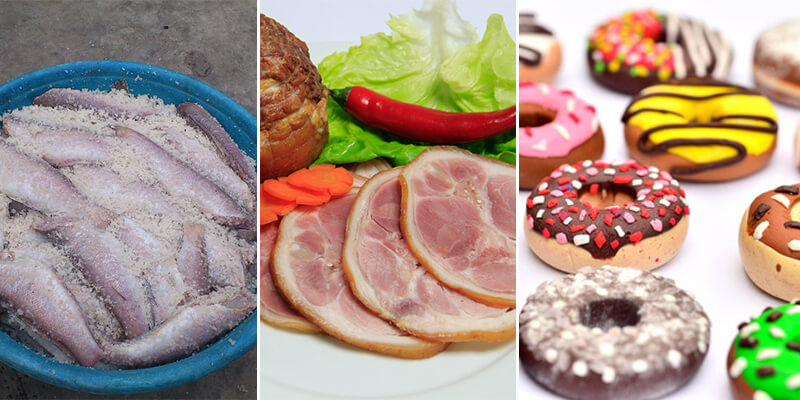
Coughing is often a result of lung inflammation. Highly salty, sweet, and fatty foods can exacerbate this issue by further irritating your lungs. It’s best to steer clear of salted fish, bacon, and other foods with high salt content when you’re dealing with a cough.
Continuing to indulge in these foods while coughing will only prolong and worsen your symptoms.
Cold Foods
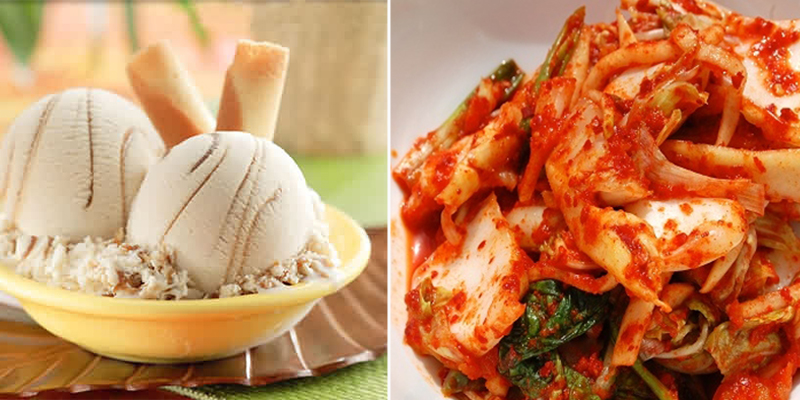
Cold foods can irritate your throat, making your cough worse. Additionally, consuming cold drinks can lead to a cold body, which can damage your lungs, and lung issues are a primary cause of coughing.
Eating cold foods can cause a blockage in your lungs, intensifying your symptoms. If you must eat something from the fridge, let it sit out for a while to lose its chill before consuming it.
Spicy Foods
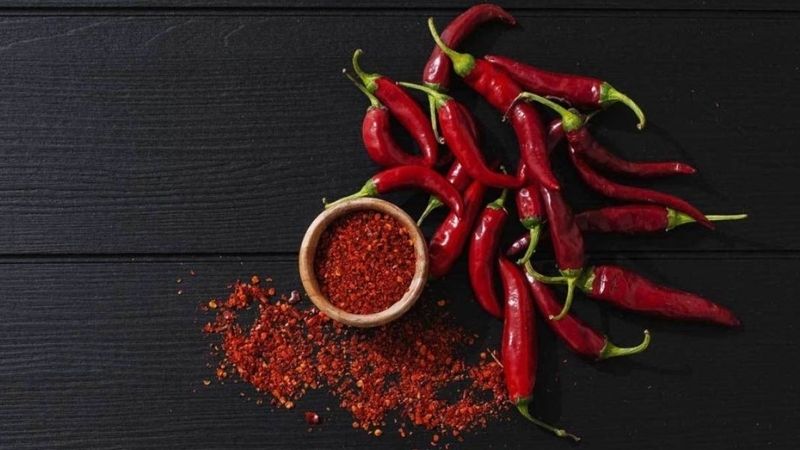 Spicy foods can prolong and complicate coughing
Spicy foods can prolong and complicate coughing
Spicy foods can prolong and complicate your recovery from a cough. Ingredients like chili, ginger, pepper, lemongrass, and mustard can quickly cause swelling and inflammation in your throat lining. Regular consumption can lead to throat pain and increased coughing.
Seafood
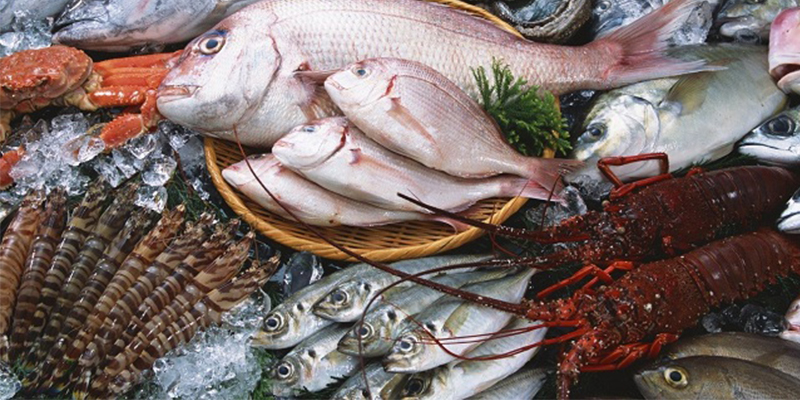
When coughing, it’s best to avoid seafood like shrimp, crab, and fish. The shells of these seafood items can easily irritate your respiratory system. Additionally, seafood is rich in protein, and many people are allergic to it, which can trigger coughing.
Vegetables with High Mucilage Content
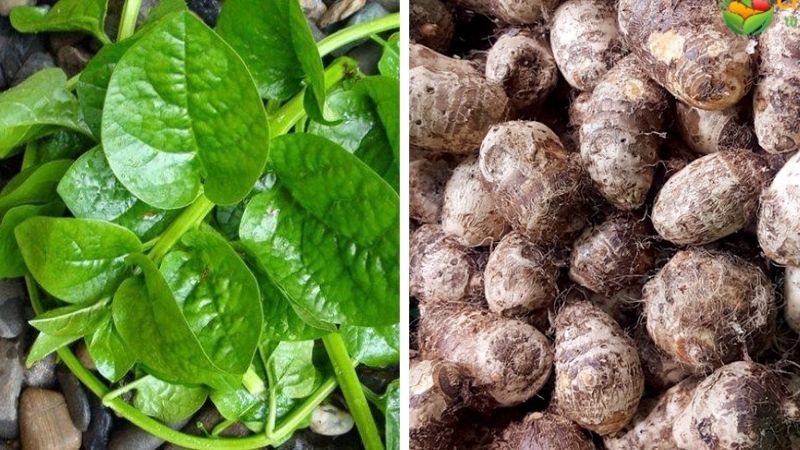 Vegetables with high mucilage content
Vegetables with high mucilage content
Vegetables like jute, basil, taro, and yam produce cellulite, which can heat up your body and increase mucus production. This, in turn, intensifies coughing and causes discomfort.
Coconut and Sugarcane
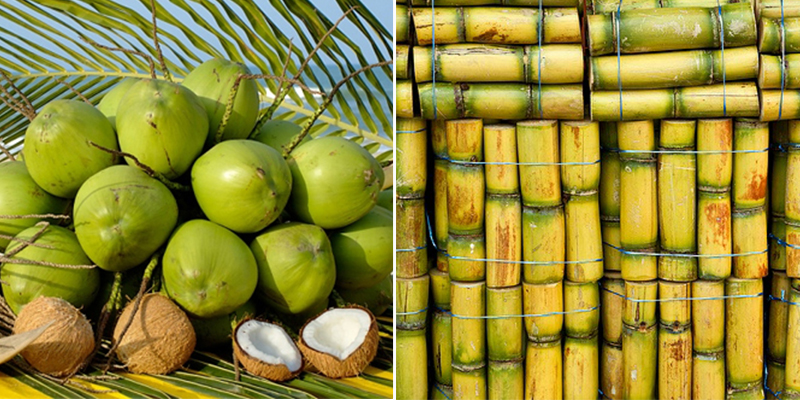
While coconut and sugarcane products are cooling for the body, they are not recommended for those with a cough or asthma. Coconut has a cooling effect that can interfere with your internal organs. Sugarcane has a similar effect, so it’s best to limit your intake when coughing.
Fried and Grilled Foods
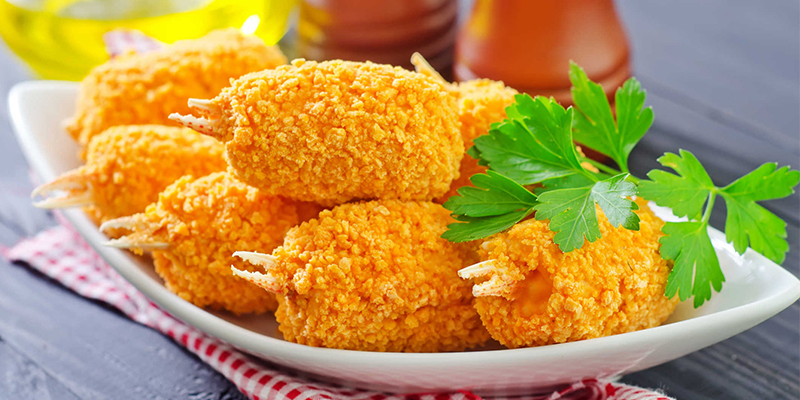
When you’re coughing, your digestive functions are typically weaker. Consuming fried and grilled foods can burden your stomach, hindering digestion and leading to increased mucus production. This will only prolong your cough.
It’s best to minimize or avoid these types of foods altogether to speed up your recovery from coughing.
Milk
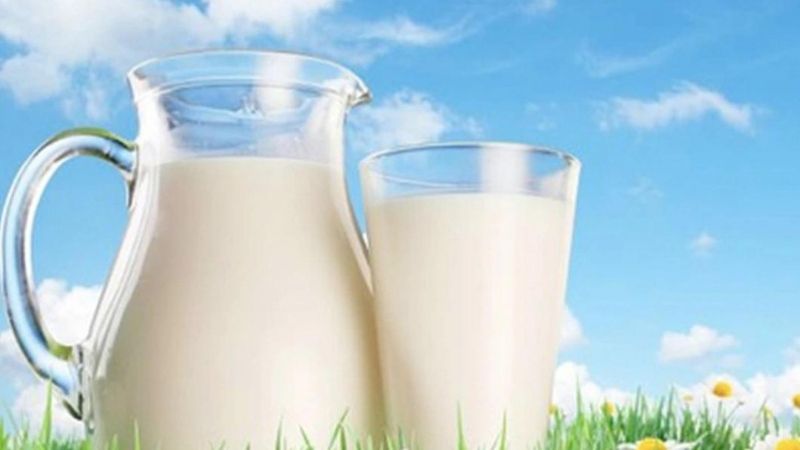 Milk contains protein and can stimulate mucus production
Milk contains protein and can stimulate mucus production
Research shows that milk is rich in protein, which can lead to excess mucus production in the digestive tract. This, in turn, can stimulate mucus production in the respiratory tract, including the lungs and throat. If you’re dealing with a cough, it’s best to temporarily avoid milk to aid your recovery.
Caffeine
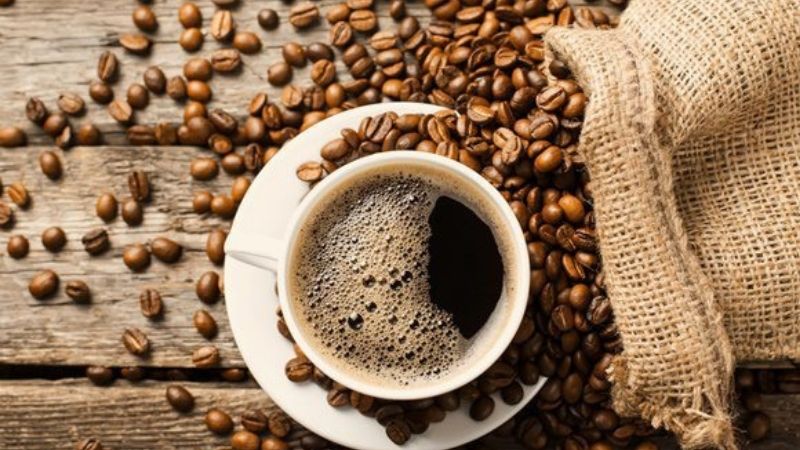 Avoid caffeine when coughing
Avoid caffeine when coughing
Steer clear of caffeinated drinks like coffee and tea. Caffeine is a mild diuretic, which can lead to dehydration and a dry throat. This can cause discomfort when swallowing and trigger a dry cough and hoarseness.
Processed and Fast Foods
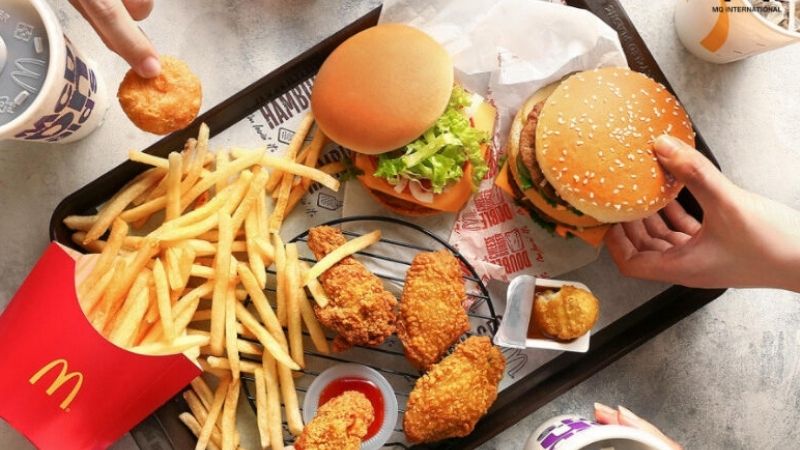 Processed and fast foods are typically low in nutrients
Processed and fast foods are typically low in nutrients
According to a review published in the British Journal of Nutrition, nutrition plays a crucial role in boosting the immune system.
When you’re unwell, avoid processed and refined foods, as they tend to be low in vitamins, minerals, and fiber. This includes white bread, white pasta, pastries, french fries, packaged snacks, and sugary desserts.
Instead, opt for nutrient-rich foods to strengthen your immune system.
Oranges
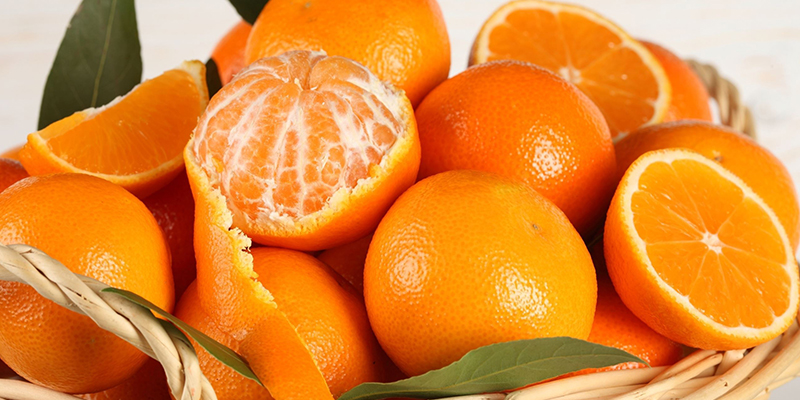
While orange peel can help with coughing and loosening phlegm, the fruit itself has the opposite effect. The cellulite in oranges can heat up your body and increase mucus production, prolonging your cough.
Alcoholic and Carbonated Drinks
 Alcoholic and carbonated drinks can dry out your throat and worsen throat inflammation
Alcoholic and carbonated drinks can dry out your throat and worsen throat inflammation
Alcoholic and carbonated drinks like beer, liquor, and sodas should be avoided when coughing. These drinks can dry out your throat and worsen throat inflammation, leading to increased coughing.
For further reference:
2. Foods to Eat When Coughing
Diet plays a crucial role when dealing with a cough. Here are some food suggestions to aid your recovery:
Porridge and Soup (Soft and Easy-to-Swallow Foods)
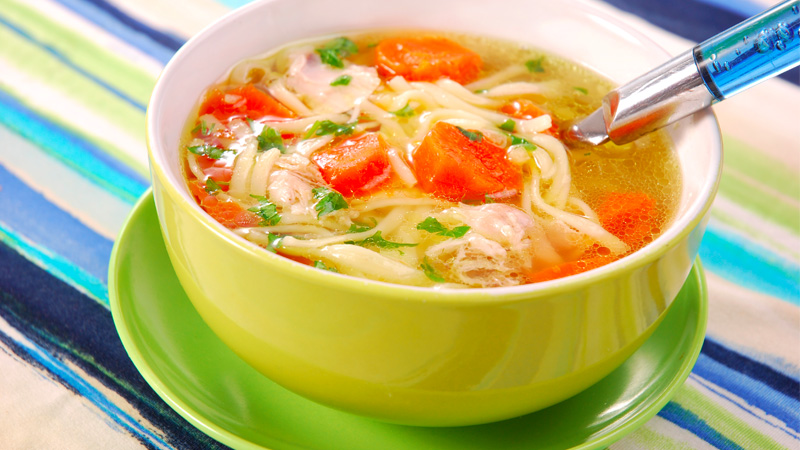
Coughing can lead to a dry and sore throat. Soft and easy-to-swallow foods like porridge, soup (such as chicken soup), and boiled vegetable broth can help prevent further irritation to your throat.
Foods Rich in Vitamins A and C
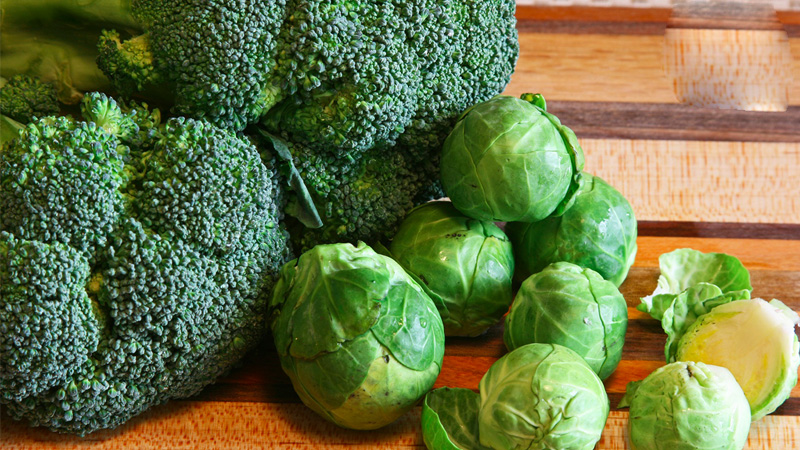
Green and red vegetables, such as broccoli and sweet potatoes, and foods rich in zinc like clams, mussels, and turnips, are excellent choices. They not only help reduce coughing but also boost your immune system and provide essential nutrients to aid your recovery.
Garlic, Onion, and Basil
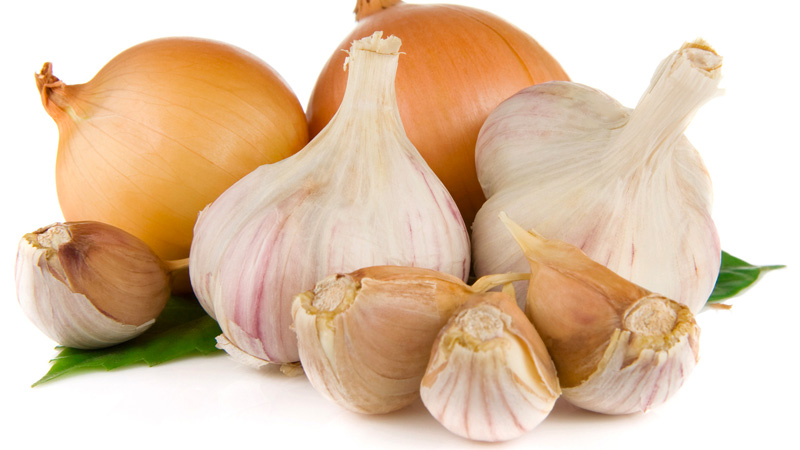
Garlic, onion, and basil are known for their anti-inflammatory and antibacterial properties. Regular consumption of these ingredients can help eliminate viruses and bacteria that cause illness. Incorporate them into your daily meals, especially with porridge, to effectively support your recovery.
>
Honey

Honey has well-known anti-inflammatory and antibacterial properties, and it can help soothe persistent coughing. Simply take a small spoonful of honey each morning or drink a cup of honey-lemon juice to boost your antibacterial defenses and quickly relieve your cough.
Mint
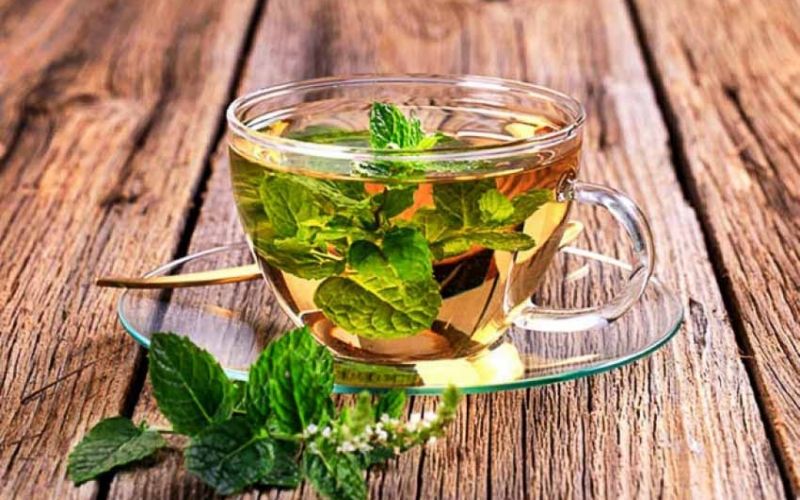
When coughing persistently, the throat’s mucous membrane can become damaged, and phlegm can build up, causing throat blockage. In such cases, mint can help dissolve phlegm and soothe the throat effectively.
Apple Cider Vinegar

Apple cider vinegar’s natural acidity helps kill bacteria in the throat, stimulates immune response, and prevents secondary infections. Additionally, the prebiotic insulin in apple cider vinegar promotes the production of beneficial white blood cells. Consuming apple cider vinegar can not only reduce coughing but also strengthen your immune system.
For further reference:
The above-mentioned foods should be included and avoided in your diet when coughing. Additionally, taking medication and using home remedies with these foods can help you overcome your cough effectively.
































